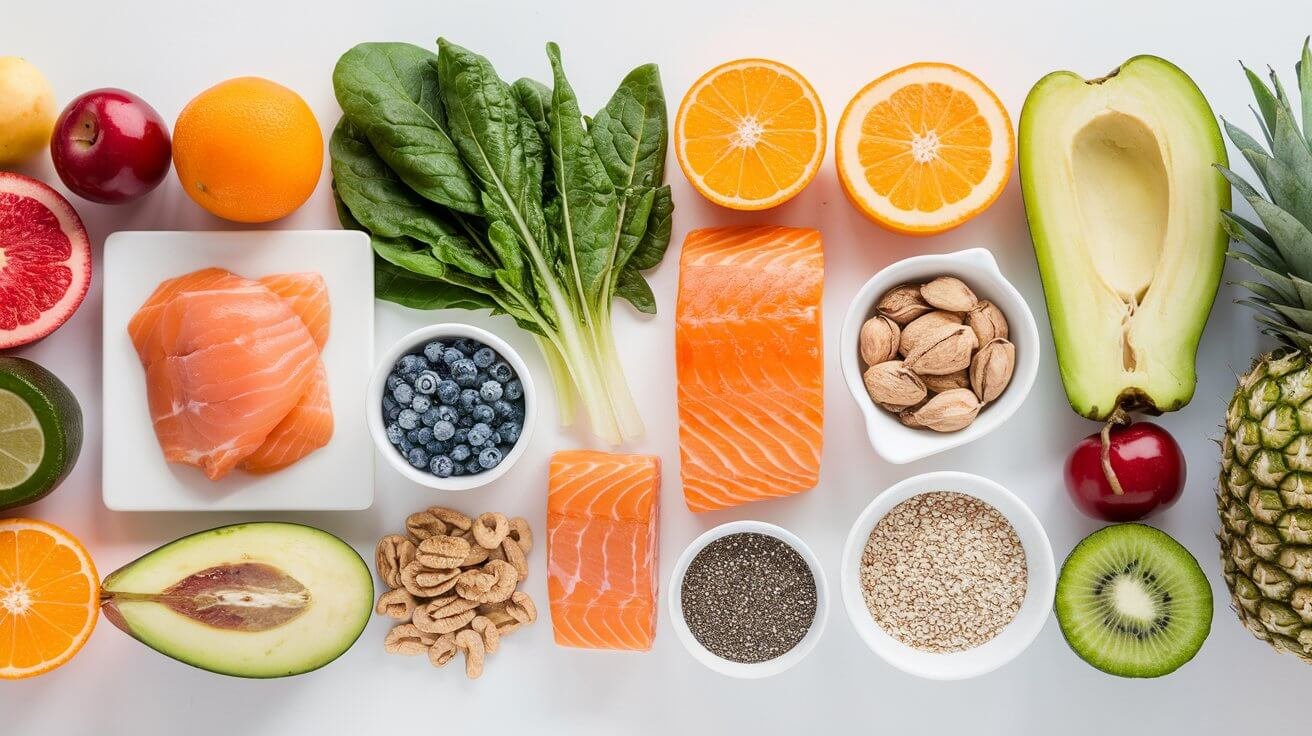Explore Healthy Living
In the age of the internet, where countless weight-loss tips, diets, and “miracle” solutions are shared daily, figuring out what truly works can be overwhelming. Many are tempted by quick fixes and fad diets that promise rapid weight loss, but it’s essential to know what’s rooted in science and what’s just hype. Here, we explore popular weight-loss foods, breaking down myths and uncovering facts to help you make informed choices.
Are Superfoods the Key to Shedding Pounds?
The term “superfood” is everywhere. Foods like chia seeds, quinoa, and acai berries are often touted as essential for weight loss, hailed for their nutrient density and health-boosting properties. But can these foods alone help you lose weight?
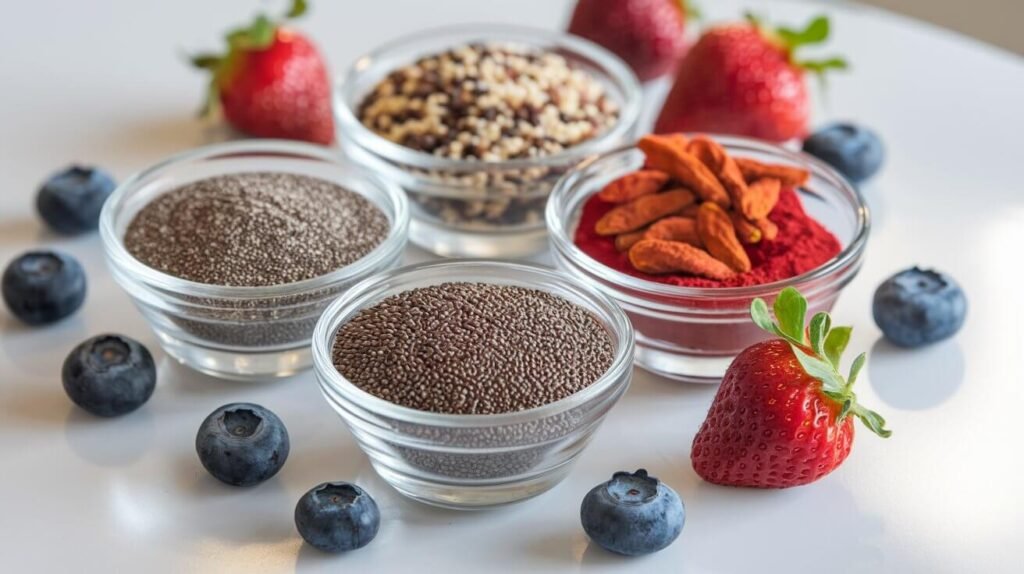
Fact Check: Superfoods are indeed nutrient-rich and offer significant health benefits. For instance, chia seeds are loaded with fiber, which aids digestion and can help you feel full, possibly reducing your urge to snack. Similarly, quinoa is packed with protein and complex carbohydrates, offering sustained energy. But while these foods are healthy, relying solely on them won’t lead to substantial fat loss. Incorporating them into a balanced, calorie-controlled diet is the key. Think of superfoods as valuable additions to your overall diet, but remember that no single food can replace the benefits of a well-rounded diet and regular physical activity.
Do Low-Carb Diets Guarantee Weight Loss?
Low-carb diets have been popular for years, with keto and Atkins at the forefront. The premise is that by limiting carbs, the body will switch to burning fat for fuel, leading to rapid weight loss. But do these diets truly deliver lasting results?
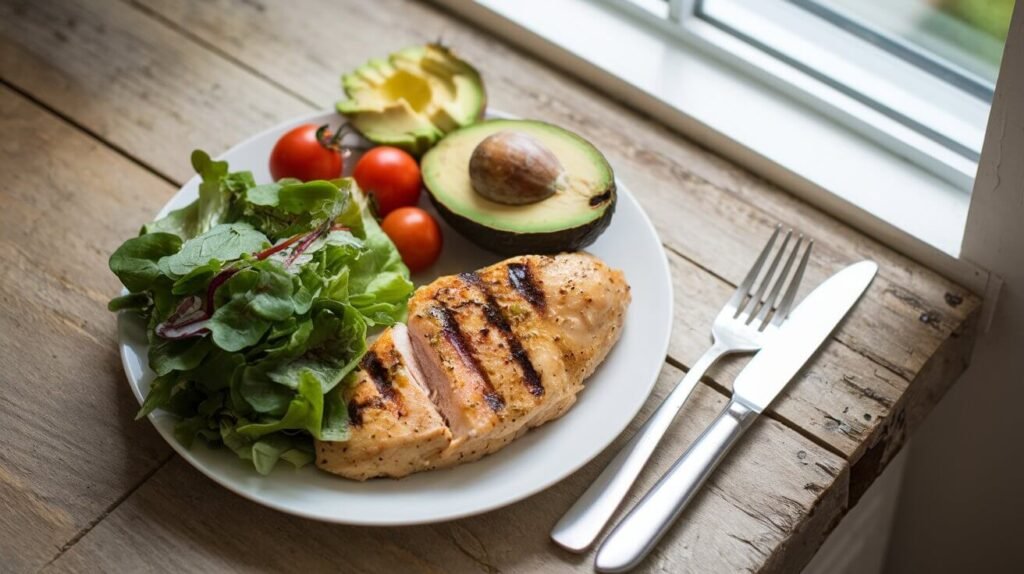
Fact Check: While cutting carbs often results in immediate weight loss, much of it is water weight lost as glycogen stores are depleted. For some people, reducing carbs does lead to effective fat loss, especially if they’re consuming a high-calorie, carb-heavy diet. However, not all carbs are created equal. Complex carbs like whole grains, vegetables, and fruits are packed with fiber, vitamins, and minerals that are crucial for maintaining energy and health. These foods help regulate blood sugar, promote digestion, and keep you feeling full longer. It’s refined carbs, like white bread, sugary snacks, and sodas, that should be minimized. A balanced intake of healthy, unprocessed carbs can support long-term weight management and overall well-being, making them an important part of a sustainable diet.
Is Protein the Most Important Macronutrient for Weight Loss?
Protein is often celebrated as the most critical nutrient for those looking to shed pounds. High-protein diets are common in fitness communities, promoted for their muscle-preserving and fat-burning potential. But is protein really the key to weight loss, and is there a limit to how much is beneficial?
Fact Check: Protein is vital for weight management and is known for its satiety-boosting and muscle-preserving qualities. When you consume protein, it helps curb hunger by increasing feelings of fullness, which can naturally lead to a lower calorie intake. Additionally, protein has a thermic effect, meaning it requires more energy to digest compared to fats and carbs, giving your metabolism a slight boost. However, more protein doesn’t always equal more fat loss. Eating excessive protein without considering total calorie intake can still lead to weight gain. Aim for balanced portions of lean protein, such as fish, chicken, eggs, and legumes, while also incorporating whole grains and healthy fats for a well-rounded approach.
Should You Avoid All Fats for Weight Loss?
Decades ago, fat was labeled as the primary cause of weight gain, leading to the rise of low-fat products. However, modern nutrition science has shifted perspectives, recognizing the value of certain fats. So, should you avoid fats entirely if your goal is weight loss?
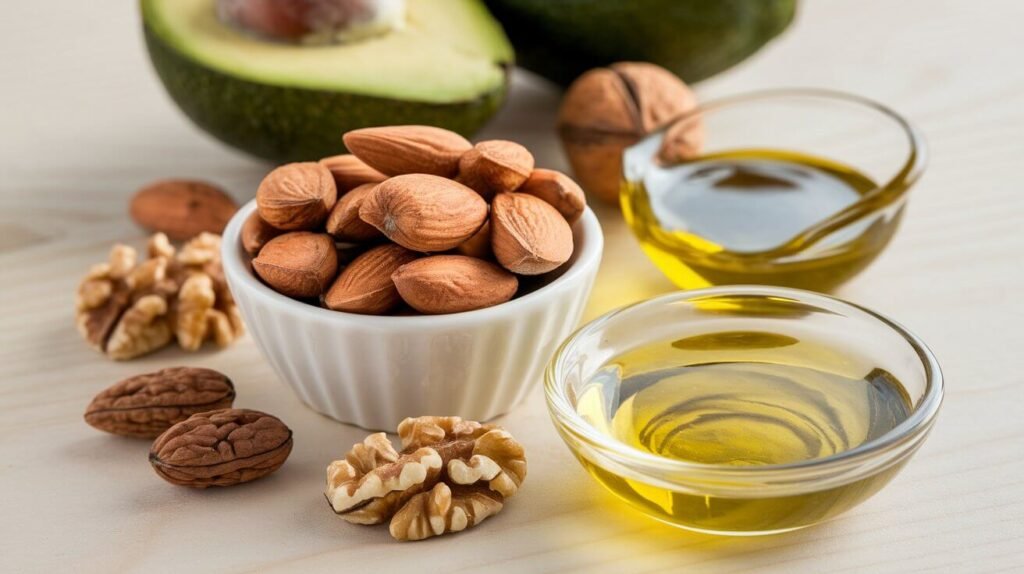
Fact Check: Not all fats are created equal, and healthy fats are actually essential for overall health. Fats from sources like avocados, nuts, seeds, and olive oil are beneficial for heart health and can help you feel fuller, reducing the temptation to overeat. Healthy fats play a role in nutrient absorption, hormone production, and brain function. On the other hand, trans fats and excessive saturated fats, commonly found in processed foods, can contribute to weight gain and increase the risk of heart disease. Including moderate amounts of healthy fats can aid in weight loss by improving satiety and reducing cravings. Focusing on nutrient-dense fats rather than processed or “low-fat” alternatives is a more sustainable and satisfying approach.
Does Eating Fruit Cause Weight Gain?
Some diet plans caution against eating fruit, citing its natural sugar content as a potential barrier to weight loss. But is it realistic to avoid fruit if you’re trying to shed pounds?
Fact Check: Fruits contain natural sugars, but they also offer fiber, water, vitamins, and antioxidants that are essential for health. The fiber and water in fruits help slow down sugar absorption, which helps you feel full and prevents sudden blood sugar spikes that can lead to cravings. While fruits like bananas and grapes may have more sugar than berries or apples, they remain a healthier alternative to processed sweets. Avoiding fruit altogether can deprive your body of valuable nutrients. Instead, enjoy a variety of fruits in moderation, focusing on whole fruits rather than juices, which lack fiber. Including a range of fruits can satisfy sweet cravings in a nutrient-dense way, supporting your weight-loss journey.
Do Detox Teas and Shakes Really Work for Weight Loss?
The weight-loss market is flooded with detox teas and meal replacement shakes, promising quick results. These products claim to reduce bloating, flush out toxins, and even burn fat. But how effective are these products in reality?
Fact Check: Many detox teas and shakes rely on diuretics or laxatives, which lead to temporary weight loss from water rather than fat. The loss of water weight can create the illusion of fast results, but this is rarely sustainable. Additionally, relying on these products instead of real, nutrient-rich foods can lead to nutrient deficiencies and may even disrupt gut health. True, sustainable weight loss comes from consistent, balanced eating and regular exercise, not from temporary quick fixes. Instead of detox products, focus on consuming a variety of fresh, whole foods that naturally support your body’s detox processes through fiber and hydration.
Is Counting Calories Still Relevant in Weight Loss?
Calorie counting has been a long-standing method for weight loss, but with newer approaches like intermittent fasting and intuitive eating, some question whether it’s still necessary. Does tracking calories remain relevant for effective weight loss?
Fact Check: Calorie counting can be useful as it helps ensure you’re consuming fewer calories than you burn, a fundamental aspect of weight loss. However, the quality of the calories you consume also matters. Focusing on nutrient-dense foods like vegetables, lean proteins, whole grains, and healthy fats will support health and weight loss more effectively than processed, low-nutrient foods. While calorie counting provides structure, fixating solely on numbers can lead to an unhealthy relationship with food. Combining mindful eating with calorie tracking, if needed, can yield the best results by helping you understand portion sizes and appreciate the value of whole, nutrient-dense foods.
Why Fiber is a Weight-Loss Superstar
Fiber often gets overlooked in discussions about weight loss, but it plays a powerful role in managing weight. Foods rich in fiber, like vegetables, whole grains, and legumes, are essential for digestive health and help regulate appetite.
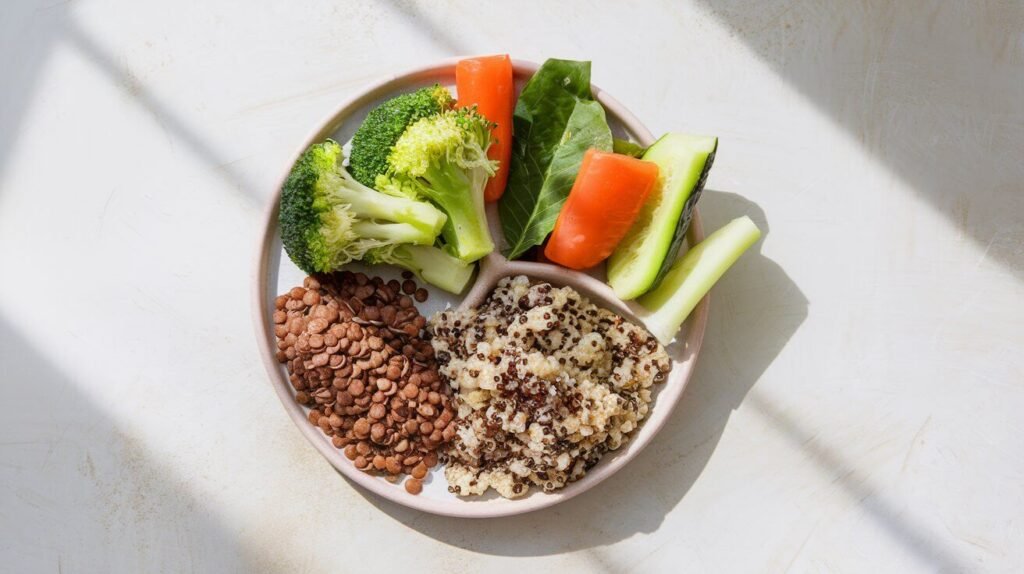
Fact Check: Fiber adds bulk to meals, promoting a feeling of fullness and reducing the likelihood of overeating. It also slows the absorption of sugar, helping to control blood sugar levels and prevent energy crashes that can lead to hunger. Studies show that people who consume more fiber tend to have lower body weights, as fiber-rich diets are often naturally lower in calories. To increase your fiber intake, focus on whole foods like fruits, vegetables, beans, and whole grains. In addition to aiding weight loss, a high-fiber diet promotes healthy digestion and supports overall well-being.
Unveiling the Truth About Weight-Loss Foods
Achieving sustainable weight loss involves more than a single magic food or trend. Instead, it’s a holistic approach, focusing on portion control, nutrient-dense foods, and an active lifestyle. The foods commonly associated with weight loss—superfoods, lean proteins, healthy fats, fiber-rich carbs—can all play a role, but none can work in isolation.
By moving past diet trends and understanding the science behind these foods, you can develop a balanced, effective weight-loss plan. Rather than looking for quick fixes, incorporate a variety of wholesome, nutritious foods, listen to your body’s hunger cues, and maintain a lifestyle that includes regular physical activity. This approach not only helps you lose weight but also promotes long-term health and well-being. In the end, the best diet is one that supports a balanced, healthy, and fulfilling life.

